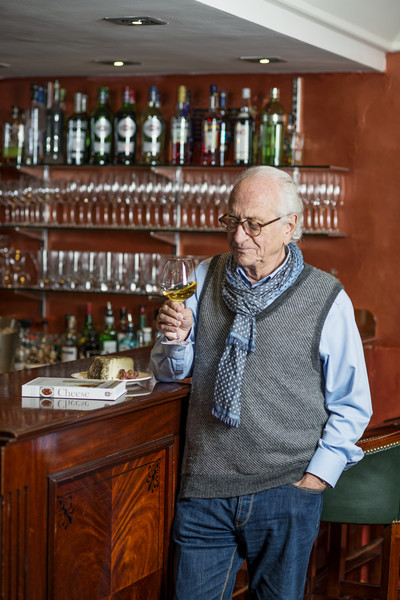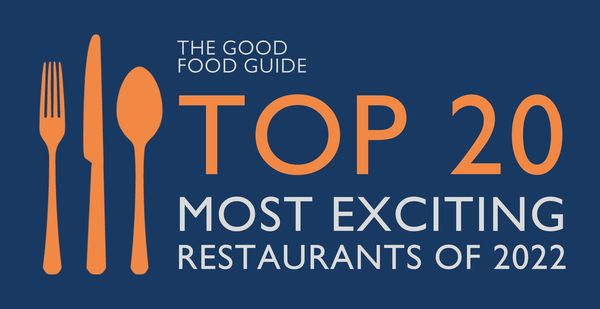Here is a Frenchman forever on the move. Over just the past few days Michel Roux has been in Switzerland (“I live there most of the time, in Crans-Montana, where I also have a bistro, Le XIX”), followed by the South of France, where “I have a shepherd’s house built in about 1880”.
Then Edinburgh, where three young chefs “stopped me in the street and said, ‘Chef, can we have a photo with you? You’re our hero...’”
At 76 years young, Michel flits and flies from here to there, and back again. This morning, though, he is on Berkshire soil at The Waterside Inn. It was once his restaurant and he remains a regular presence. Since 2002, however (when he was also awarded an OBE), it has been under the chef-patronage of his son, Alain.
When we meet, Michel is full of energy, and on top form, although he dips momentarily into a sorrowful tone when he mentions diners who photograph food at the tables. They irritate him. “I’m really getting so upset about people taking pictures,” he complains. “We put up a card at the door – ‘No photos, please.’ I mean, what are they doing?”
Usually chefs relish the free publicity of social media, actively encouraging the glorification of their dishes. Michel swims against the tide of such gratuitous displays.
“Maybe once during the meal you want to take a little photo of something because it’s unusual... But, you know, what about the flavours? A picture on a phone cannot possibly capture the flavours.”
There is plenty more to capture here, however: just take a look around. The sun has not long risen over the village of Bray, and a mist gently blankets the Thames. Beyond the dining room, and beside the jetty where the restaurant’s boat is moored, a family of swans bobs on the river’s ripples.
From the kitchen, meanwhile, comes the rhythmic chop-chop-chop as the brigade sets to work on the day’s service, overseen by Alain and head chef, Fabrice Uhryn. Michel stops in the dining room – he asks a waiter for “a small café, mon petit, s’il vous plaît” – and chats to the general manager, Diego Masciaga (“Mister Diego” to staff), the king of service who never drops his smile – not even in sleep, it is said.
The Waterside Inn is a portrait of perfection in hospitality, and the guests who are coming to lunch are in for an unforgettable treat at the restaurant, which has held three Michelin stars since 1985 (Britain’s only restaurant to have retained them for so long).
Of course this heavenliness – the apparent ease and effortlessness of The Waterside – did not just happen. The many accolades and honours are the product of the hard graft and grit of Michel and his older brother Albert.
Michel sips at his espresso, and recalls the beginning. “I was 14 when my mum took me to a patisserie for my first job. I held her hand so tight, and didn’t want to let go. I was so frightened she would leave me behind.” She did, although swiftly his fear was replaced by culinary passion.
There, at the patisserie in Belleville, Paris, he worked seven days a week for an Alsatian boss whose bite was as bad as his bark. “What I learned very quickly was that there are two ways of doing things. The first is sloppy. The second way is to take a lot of pride in what you are doing, and this will make people happy.”
“I surprised myself because when I left, the old man said to me, ‘I think you will go a long way. You are, I believe, the only apprentice I haven’t given a good whack to.’” Michel is stopped by the flashback. Then he adds, “You know, I took that as one of the best compliments I ever had. It was a different time, a different era.” And it was there “that I learned love, care, attention to detail, doing better”.

So while his namesake nephew may have greater exposure on our television screens, Michel Roux Senior is comfortable in his status of “legend”. Way back in the late 1960s, he and elder brother Albert opened Le Gavroche (at its original site in London’s Chelsea). That one little restaurant made a gigantic impression. It hailed the birth of ne French restaurants in Britain, coming at a time when the nation’s restaurants, according to Michel, were “abominable”.
“There was no life, no substance to food. People wanted big portions of hot food, all of it overcooked and mostly reheated. What a sad, terrible time. It was like someone had forgotten to switch on the light. And we did it, we switched on the light.”
In 1972, five years after launching Le Gavroche, the brothers opened The Waterside Inn, a former pub.
Guests are arriving for lunch. In the bar, Michel has a glass of white burgundy and inches at the memories of those early days. “It was very, very tough to start with. Think of the theatre – the finest cast can only give its best shot when it has an audience. We had no audience. On weeknights we had more waiters than guests.
“People wanted to go to the pub, have a beer, and then head home. They didn’t go to restaurants as they do today. These days, people go out for lunch or dinner almost as if they are going out for a drink. It’s gone from one extreme to the other.”
Michel and Albert struggled, “but we had the brothers’ spirit, giving energy to the team. I had to say, ‘Come on, guys, there may only be two coming for dinner tonight, but let’s give them the meal of their lives.’” This part of his story has a happy ending, of course. Rave reviews and word of mouth brought in curious guests, who ranged from the Queen to The Rolling Stones.
“The ups and downs were worth it. People who fail in life are full of knowledge. They have lost something and want to make sure it is not going to happen again. You learn by your mistakes and having tough times. You need to be hungry in life. So, if Albert and I had not been together, I don’t know if either of us would have been able to sustain it mentally, morally and financially.”
This is, however, a tale of two brothers who ended up going their separate ways. “We don’t see each other very often now. You know, life goes on. But when we do see each other, it is lovely.”
Michel has the ability to make a positive of the negatives in life. His charcutier father, for instance, was a gambler and womaniser, walking out on the family when Michel was ten years old.
Yet Roux insists: “Although he left my mum, in some ways it was the seed of our success because our mum showed us on her own all that a father and mother can show to their children, by always looking after us well, feeding us, making us help in the kitchen. We used ingredients which were very cheap but we made lovely dishes.”
He inhales deeply, as if back at that childhood table, about to tuck into his mother’s blanquette de veau, so incredibly good it went onto the very first menu of The Waterside Inn.
Simplicity in cooking is crucial, he says. “I want to protect what Mother Nature has given me. The problem very often is that chefs and cooks kill the main ingredient with too much spice, herbs, alcohol, whatever. I can’t bear it when a young chef – some flash in the pan who will be gone in a few years’ time – mixes strange things together, or burns them... on purpose! Why do such dreadful things to beautiful ingredients?”
His new book is entitled Cheese, and contains more than 100 recipes for cooking with it. “When I was a kid, we’d put a small piece of cheese on the big loaf of bread to nourish ourselves because we didn’t have much money. Nowadays, cheese is used as an ingredient in many dishes.”
While others urge us not to indulge, Roux is forthright: “People ask: ‘Is cheese healthy?’ Well, of course it is. It’s one of the healthiest things, full of protein.” And the trolley is heading in our direction, laden with 40 cheeses, all ripe and spectacular, odorous and oozing. What a picture.
Interview by James Steen. Originally published in Waitrose Food, November 2017




